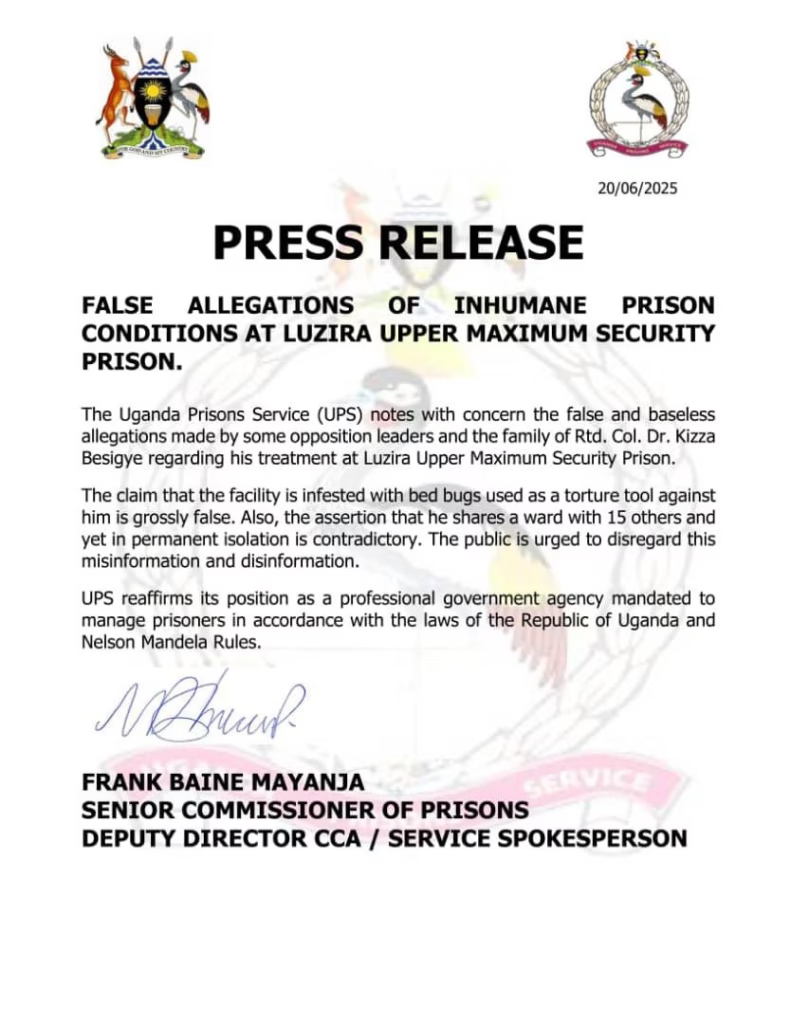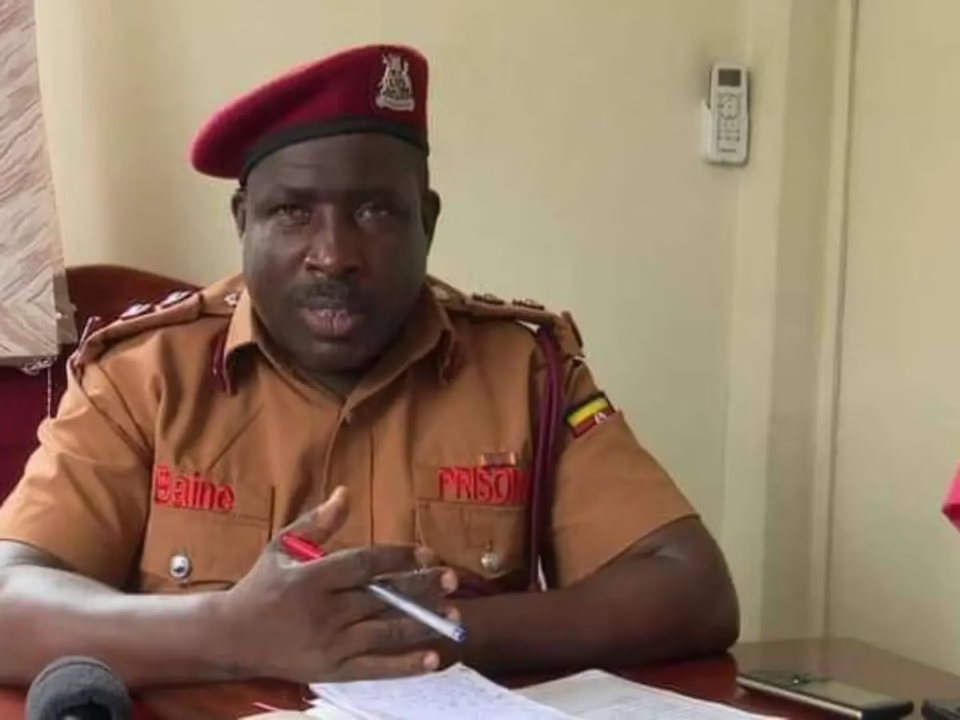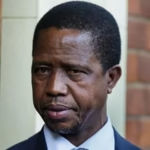The Uganda Prisons Service has pushed back against growing claims that opposition figure Dr. Kizza Besigye is being held under inhumane conditions at Luzira Maximum Security Prison—claims that have stirred both public concern and political tension across the country.
For weeks now, the family of Dr. Besigye, along with key opposition leaders, have sounded the alarm about the veteran politician’s welfare behind bars. His wife, Winnie Byanyima—herself a high-profile diplomat and health advocate—visited him recently and came away shaken.
“He’s thinner, isolated, and hasn’t eaten in days,” she said after her February visit. “He fears for his life.”
According to Byanyima and opposition MPs, Besigye’s cell lacks basic comfort, and he is being held separately from other inmates, raising fears about both his safety and mental well-being. Concerns have also emerged about his access to medical care, especially given his high blood pressure and the ongoing effects of earlier detainment in military custody last year.

But prison officials are telling a different story.
Frank Baine, spokesperson for the Uganda Prisons Service, was quick to dismiss the accusations. “There is no mistreatment of Dr. Besigye or any other inmate. These are false claims aimed at stirring political emotion,” he said.
Baine explained that while Luzira Prison does allow for family and legal visits, protocols must be followed—especially when it comes to outside food or contact. “All inmates are treated equally. We have clear guidelines for medical access and diet. Dr. Besigye has not been denied any rights,” he added
The matter reached Parliament earlier this year, prompting an official visit by the Committee on Human Rights. The findings were mixed.
On one hand, the majority report noted that the prison had made improvements—cleaner bathrooms, painted walls, and functioning water systems. On the other hand, the committee acknowledged that Besigye appeared fearful and isolated, and that there was a lack of clarity about whether his solitary confinement was justified.
A minority report went further, accusing the prison of violating his constitutional rights by restricting his access to communal worship, family interaction, and even the outside food he trusts. There were even whispers—unconfirmed—about fears of poisoning.
For now, Besigye remains in Luzira. His lawyers are calling for an independent medical evaluation and greater transparency from prison authorities. Human rights groups, both domestic and international, have also begun raising their voices, calling for oversight and accountability.
Meanwhile, the Uganda Prisons Service continues to maintain its position: that Besigye is safe, receiving proper care, and being treated no differently than any other prisoner.
But for those close to him, the question remains: If everything is being done by the book—whose book is it?



